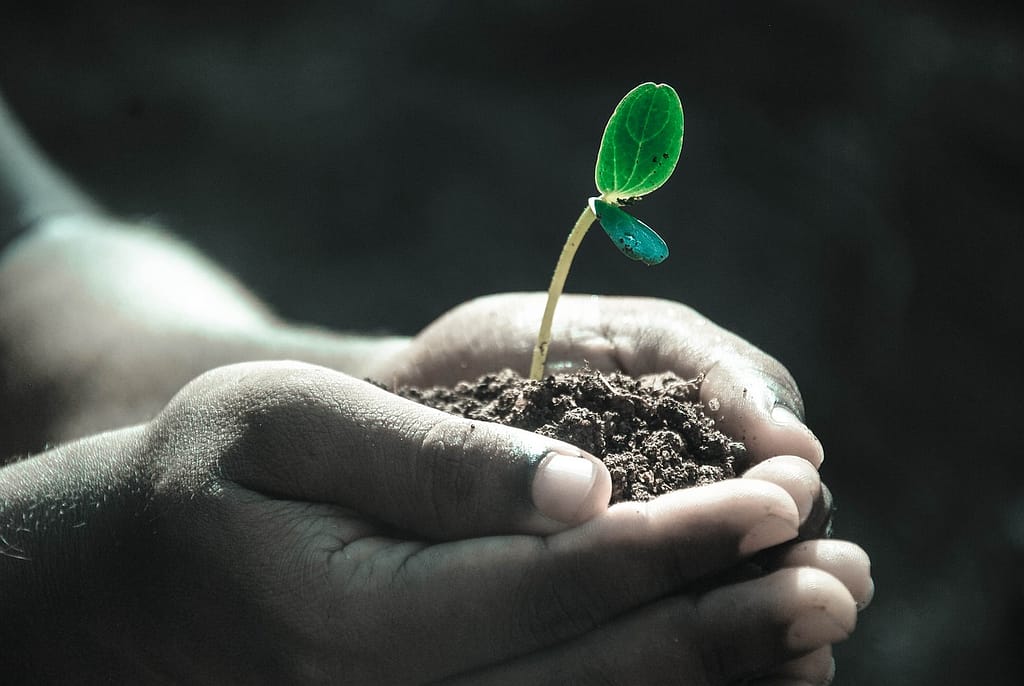

Best Sustainable life hacks in 2024

What are the best methods and habits for a sustainable lifestyle?
Here are 29 of the best ways to hack your life in a sustainable way and many also offer substantial money saving opportunities. Enjoy browsing!

1. Start with Energy Efficiency
- Switchover to LED Lights – these save money, last a lot longer and are more flexible than conventional bulbs.
- Use Smart Thermostats where applicable – these map your usage of power and heat and adapt to find the most efficient patterns for your lifestyle.
- Upgrade to Energy-Efficient Appliances: Energy Star or other rated appliances will save you fuel and renewal costs.
2. Embrace Renewable Energy
- Install Solar Panels: Governments are currently offering significant benefits for doing this, and over time you can become a net exporter of power, thus earning you money.
- Use Solar-Powered Gadgets: Solar powered gadgets are useful avoiding charger time and battery buying. A major and very exciting new product development in this area is also pending
– Check out how powerfoyle is changing the world.
3. Reduce Water Waste
- Fix leaks promptly as leaks waste water fast in large accumulated amounts.
- Install low-flow fixtures which cut usage at the tap head without affecting performance.
- Collect rainwater in a runoff barrel or pond from roof guttering. This is not only attractive, it makes watering plants much easier as you can dip a watering can a lot faster than tap filling. Water reserves attract friendly wildlife also.
4. Minimize Plastic Use
- Ditch single-use plastics. While we all pick up plastic carrier bags from time to time, use these as bin liners. Recycle bottles etc. Really this is very simple and the logic is unassailable.
- Choose plastic-free alternatives and use them wherever possible. This is not as tricky as it sounds, it’s just a question of focus at the buying point.
5. Adopt a Plant-Based Diet
- Reduce meat consumption as pound for pound meat has four times the drawdown on resources to produce. Yes we all like a burger from time to time so don’t lose out, but cut down on meat. It’s healthier for you as well.
- Buy local & seasonal produce to ensure fuel and emissions are kept to a minimum.
6. Reduce, Reuse, Recycle
- Practice zero waste. While this is impossible to totally achieve, nevertheless getting as close as possible reduces environmental loads and introduces a maximum of resources back into the recycling economy. Some even pays back in money.
- Upcycle old items into new forms and functions rather than throw them out and buy new. There are countless examples of lovely upcycling projects online for reference.
7. Support Sustainable Fashion

- Buy less and choose quality items. It’s an old adage – ‘Pay twice as much and buy half as many – it will last you four times as long and look good for all that time’.
- Shop secondhand and browse thrift shops and charity sales. You never know what u will find – I found a fabulous leather jacket for £20 – I’ve still got it. I also found a professional quality hair clipper rejected by a hairdresser for a minor rattling fault. It has saved me over £1000 in barber fees over the years. I paid £8 for it.
8. Green Your Transportation
- Walk or bike to your local destinations. Fresh air and exercise are good for you – don’t short change yourself here.
- Use public transportation to travel longer distances. Not only will you cut emissions, you will arrive directly into urban centres without needing to find or pay for vehicle parking.
- Consider an electric vehicle or hybrid when changing up your current car or bike. These vehicles are the coming wave with prices and rebates good and continuing to get better.
9. Make Eco-Friendly Purchases
- Choose biodegradable products that will rot down into useful minerals at the end of their use.
- Support sustainable brands who are serious about green issues.
10. Green Your Home
- Insulate your home – it’s the single best thing you can do to save energy, fuel and therefore the planet.
- Use eco-friendly cleaning products to prevent polluting chemicals entering the waste water cycle.
11. Grow Your Own Food
- Start a vegetable garden and grow your own veggies and herbs in your garden. This is a fun and rewarding pastime and is simple to do. Many sites online offer excellent and easy tutorials.
- Use organic gardening practices such as tiger worm food composting, no dig beds etc etc the list goes on. Avoid chemical boosters or pesticides – remember you want to eat these plants later. Pests can be treated with live solutions such as ladybird shipments for greenfly – your predators will come next day delivery and hungry from their journey – bad news for greenfly but good news for your next salad.
12. Reduce Paper Waste
- Go paperless as much as possible. While we will all want to have some paper usage, much of our paper use is truly inefficient and could be cut out so try your best to put this into practice.
- Use recycled paper when paper is needed, to wrap presents, make art or send greetings while stimulating the circular economy.
13. Conserve Energy in the Kitchen
- Cook efficiently by cooking in bulk, using low heat settings and correctly sized pots with fitted lids.
- Unplug appliances when not in use such as coffee makers and microwave ovens. These types of appliances all continue to draw power when not in use so are wasteful.
14. Practice Sustainable Tourism

- Choose eco-friendly destinations to visit. Select places that stress they are doing all they can towards green practices.
- Support local economies by using local shops and eateries rather than big tourist trap locations (who often gouge on pricing as well).
- Avoid flying if possible. Truly the best ways to travel and see the world while feeling the distance remain – the train and the ship. Modern long distance trains and ships are fully up to date experiences and I cannot recommend them enough. Spam in a can in the sky no thanks. All distance perception is lost and you see nothing.
15. Get Involved in Your Community
- Participate in local clean ups – join a volunteer group to improve the nieghborhood.
- Advocate for sustainable policies and vote, sign petitions and organise community actions on these.
16. Educate Yourself and Others
- Learn about sustainability by reading books, watching documentaries and following experts to stay informed about the environment.
- Share this knowledge with others and inspire them to join in.
17. Mindful Consumption
- Buy only what you need – this means that you will not only not waste excess by having to throw out, you will stress the supply chains less also.
- Practice conscious spending and consider the impact what you are buying will have on the environment.
18. Eco-Friendly Work Habits
- Reduce office waste by increasing usage of digital resources and recycling. Use green AIs.
- Support green businesses more in your client and business networks.
19. Conserve Resources
- Use less water – two ways are to take shorter showers and turn off the tap when brushing your teeth.
- Reduce electricity use and switch off lights when leaving a room. Unplug gadgets not in use, install smart meters and IoT management systems.
20. Reduce Food Waste
- Plan your meals and shop with a list so that you do not waste food.
- Compost leftovers into good organics for your garden. Tiger Worms composting bins are excellent for this, producing good quality compost relatively quickly.
21. Eco-Friendly Celebrations

- Use sustainable decorations and choose decorations made from natural or recycled materials for your next party. Buy a good quality set of low energy fairy lights to reuse repeatedly.
- Reduce gift waste by giving experiences instead of things or picking sustainably made items.
22. Sustainable Cleaning Habits
- Make your own cleaners. You can use vinegar, baking soda, and lemon juice for natural cleaning solutions.
- Buy in bulk to get lower prices and reduce packaging waste.
23. Stay Informed and Adaptive
- Keep learning because sustainability keeps changing—stay up to date on new practices and technologies that help you to live green.
- Adapt to change and be ready to change habits as new information and technologies come along.
24. Opt for Digital Alternatives
- Choose digital receipts whenever possible.
- E-books versus paper books is a tough one. I would say that factual instructional books do not need to be on paper and therefore should not be, but a literary novel is a different matter. If you are ok with an ebook pad for your books and find this acceptable, do it.
25. Reduce travel emissions
- Limit air travel as flying is heavy on carbon emissions. Not only are trains and buses much greener, they give an experience of travel no plane can ever match, until the return of passenger airships.
- Pack light since the lighter your bag, the less fuel will be used for transport.
26. Sustainable Shopping

- Support local artisans and buy handmade items from your local crafters to support your area and reduce the mass production footprint.
- Choose sustainable materials. These include bamboos, corks & organic cotton.
27. Promote a Circular Economy
- Repair instead of replacing broken things. This saves you money and cuts wastage.
- Participate in clothing swaps and get a fresh wardrobe without buying new.
28. Mindful Eating
- Grow your own herbs by starting a small herb garden at home. You will get fresh garden herbs without any packaging waste and they will taste much better too.
- Support brands who practise ethical sourcing and fair trade principles.
29. Reduce Chemical Use
- Apply natural pest controls with methods such as companion planting or mini beast applications to keep pests away without harsh chemicals. Many hungry little predators can be bought and quickly supplied to you for clearing out infestations.
- Choose non-toxic products for personal care and cleaning products to lessen your chemical impact on the water cycle.
Conclusion:
Sustainable living doesn’t have to be complicated or expensive. By making small changes in your daily habits—whether it’s switching to energy-efficient appliances, reducing your water usage, or supporting local businesses—you can have a profound impact on the planet. The beauty of sustainability is that it’s a journey, not a destination, and every effort counts.
Remember, you don’t have to be perfect; it’s about making consistent, thoughtful choices that work for you. The planet will thank you, and future generations will benefit from the mindful decisions we make today. Let’s continue to innovate, educate, and adapt as we embrace sustainability in 2024 and beyond.





